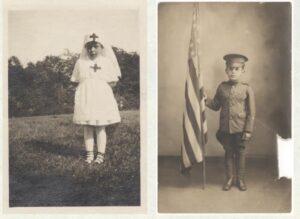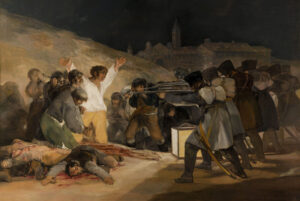Dear Mr. History
I have three questions about World War 1. It would be great if i could receive an answer on each but it would still be extremely helpful if you had time less. Anyway, I’m wondering:
1. Imperialism and Nationalism are the two main causes for WW1, but when, where and how do these factors appear most distinctly? I would love to get diverse perspectives (before, during and after the war).
2. I’m aware of that the russian revolution and their ideological changes and opinions have strongly affected the war, but in which ways? and is it true that there are (and what are these?) similarities with the french revolution’s liberal and the russian revolution’s communism’s social impact?
3. And last (but definitely not least), how goes the treaty of Versaille (short summary)? and why didn’t it’s peaceful purpose fulfill?
By the way, I’m a swedish 15yr-old, so if problematics occur, pardon my unpolished language-skills and keep that in mind. Feel free to ask me things I’ve been too unclear about, and till then good luck!
Best regards, Rickard Westerbergh
? ? ?
Dear Rickard,
It’s not easy to sum up such fundamental questions with short, pat answers, but I will try.
1. The imperialist and nationalist forces that converged in 1914 had been building since the mid-19th century, if not earlier. Britain was the foremost global power, but Kaiser Wilhelm II, already reigning over the most dynamic power in Europe, was fomenting an unnecessary rivalry with his aunt Victoria’s kingdom by establishing German colonies around the world and building the German navy to a size approaching comparability to Britain’s. Austria-Hungary and the Ottoman empire were struggling just to hold themselves together against various restive nationalist movements, most notably in the Balkans, where Russia was pursuing ambitions of gaining influence through their “little cousins” the Serbs. Italy, recently independent, had ambitions of advancing “Italia Irredenta” along the northern Adriatic coast at further Austro-Hungarian expense (in spite of their nominal alliance, which Italy would sever in May 1915). The United States was just emerging as a world power, but still rather reluctant to do much more than it had in 1898. Japan, however, had a shopping list of Western imperialist powers that it planned to displace in Asia, and having signed an alliance with Britain in 1902 and humiliatingly driven out the Russians in 1905, it was setting its sights on German y’s possessions in China and the Pacific.
2. Strategically the Russian Revolution took a major Allied power out of the war and gave the Germans their last best chance at victory in the West—for all it ultimately did them. In the long run, it led to decades of fresh rivalry—with ideology thrown in for good measure—between the United States and the Soviet Union, but Soviet Communism has had little long-range political influence outside of Russia, involving a good amount of the obsessions with power and paranoia that had been part of Russian history since the Middle Ages and the beginnings of the tsars. France’s revolution has had a longer-range effect, largely through its more idealistic principals that were advanced under Napoleon before his concurrent quest for power collapsed.
3. The treaties of Versailles, Trianon and Lausanne generally did more harm than good with the vindictive manner in which they laid blame for the war primarily on the Central Powers, especially Germany, and their dismemberment of the defeated empires. They advanced the agendas of some nationalities in the name of “self-determination” (e.g., Czechoslovakia) while ignoring others (e.g., Vietnam), leaving a lot of vindictiveness festering in countries that would emerge anew in World War II—and leave the world to sort itself out in new ways thereafter, following their own independent courses (such as post Atatürk Turkey, the now-separated Czech Republic and Slovakia, a lot of artificially delineated Arab states, the not-so-purely communist Communist China, and…Vietnam.
Sincerely,

Jon Guttman
Research Director
World History Group
More Questions at Ask Mr. History
Don’t miss the next Ask Mr. History question! To receive notification whenever any new item is published on HistoryNet, just scroll down the column on the right and sign up for our RSS feed.




